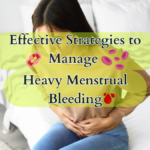Hormone-Balancing Foods
Have you ever felt like your body is working against you? Maybe you’re tired all the time, struggling with mood swings, or dealing with stubborn weight gain despite your best efforts. The culprit could be your hormones.
Hormones are your body’s chemical messengers, regulating everything from metabolism and mood to sleep and hunger. When they’re out of balance, your whole system feels off. The good news? What you eat can play a huge role in keeping your hormones happy.
In this guide, we’ll explore how to eat for your hormones, covering the best hormone-balancing foods, key nutrients, and simple dietary tweaks to help you feel your best.

Understanding Hormone Balance
Before diving into foods, it’s important to understand how hormones work. Key hormones like insulin, cortisol, estrogen, progesterone, and thyroid hormones need to stay in harmony for optimal health. When one is off, it can trigger a domino effect.
Common signs of hormonal imbalance include:
- Fatigue
- Weight gain (especially around the midsection)
- Mood swings or anxiety
- Irregular periods
- Poor sleep
- Cravings for sugar or salty foods
The right diet can help regulate these hormones naturally.
Video Credits
Top Hormone-Balancing Foods to Include in Your Diet
1. Healthy Fats for Hormone Production
Hormones are made from fat, so eating the right kinds is crucial.
- Avocados – Rich in monounsaturated fats that support hormone synthesis.
- Nuts and seeds – Almonds, walnuts, flaxseeds, and chia seeds provide omega-3s and fiber.
- Olive oil & coconut oil – Great for cooking and hormone-friendly fats.
2. Fiber-Rich Foods for Blood Sugar Balance
Stable blood sugar = balanced insulin (the hormone that manages sugar levels).
- Leafy greens – Spinach, kale, and Swiss chard help detox excess hormones.
- Berries – Low-sugar fruits packed with antioxidants.
- Whole grains – Quinoa, brown rice, and oats keep insulin steady.
3. Protein for Satiety and Muscle Health
Protein helps regulate hunger hormones (ghrelin and leptin).
- Grass-fed meat & poultry – High in amino acids for hormone repair.
- Wild-caught fish – Salmon and sardines provide omega-3s for inflammation control.
- Lentils & beans – Plant-based protein sources with fiber.
4. Cruciferous Vegetables for Estrogen Balance
These veggies help detox excess estrogen.
- Broccoli & cauliflower – Contain DIM (diindolylmethane), which supports estrogen metabolism.
- Brussels sprouts & cabbage – Aid liver detoxification.
5. Adaptogens for Stress Hormones
Chronic stress raises cortisol, disrupting other hormones.
- Ashwagandha – Helps lower cortisol.
- Maca root – Supports energy and hormonal balance.
- Holy basil – Reduces stress-related hormone fluctuations.
Foods to Avoid for Hormonal Health
Just as some foods help, others can disrupt hormone balance:
- Refined sugar & processed carbs – Spike insulin and cause inflammation.
- Soy products (in excess) – May interfere with thyroid function.
- Conventional dairy – Often contains hormones that may disrupt yours.
- Alcohol & caffeine – Can stress the liver and adrenal glands.
Lifestyle Tips to Support Hormone Balance
Eating right is just one piece of the puzzle. Try these habits for better hormonal health:
✅ Prioritize sleep – Poor sleep disrupts cortisol and hunger hormones.
✅ Manage stress – Yoga, meditation, and deep breathing help lower cortisol.
✅ Exercise wisely – Too much intense exercise can raise cortisol; balance with strength training and walking.
✅ Stay hydrated – Water helps flush out toxins and supports metabolism.
Final Thoughts: Small Changes, Big Impact
Your hormones don’t need a complete diet overhaul—just mindful, consistent choices. Start by adding more healthy fats, fiber, and protein while reducing sugar and processed foods. Over time, you’ll likely notice better energy, mood, and overall well-being.
Ready to Take Control of Your Hormones?
If you found this guide helpful, share it with a friend who might benefit! For more tips on nutrition and wellness, subscribe to our newsletter or drop a comment below with your biggest hormone-related challenge.
Here’s to eating for balance and feeling your best!











